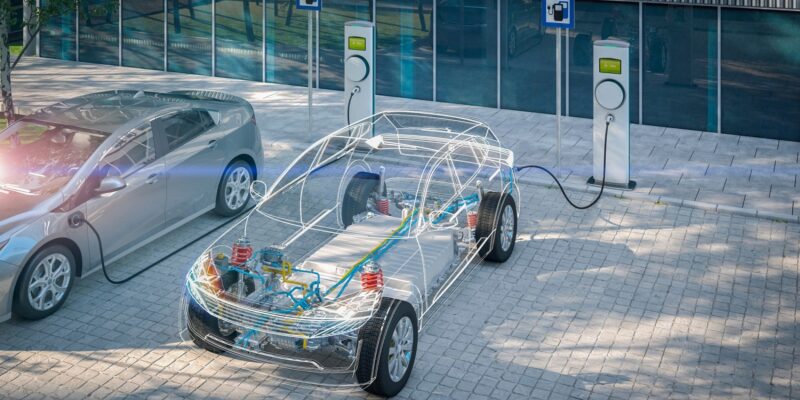
For regular observers of the automotive industry, the electric vs fossil fuel debate has been revisited time and time again over the last decade. That debate has covered an array of fundamental areas of concern around electric motoring – the technological requirements to manufacture them, performance and range issues, consumer interest and cost, to name a few.
Over time, advances in the industry have mitigated all but one of those issues. Electric vehicles (EVs) today are widely manufactured, offer exceptional performance and greater range capabilities than ever before, and enjoy significant consumer interest. Indeed, with the 2030 petrol/diesel and 2035 hybrid car bans on the horizon, the complete takeover of EVs is now inevitable, but there still remains one key stumbling block at present – the cost factor.
While there are an estimated 400,000 electric cars on UK roads today, the notably higher upfront cost of EVs means that many would-be buyers are still a little hesitant – or indeed priced out of – pulling the trigger on a purchase. Thus, for electric cars to truly establish themselves as the primary form of transport on our roads, reaching and surpassing price parity with combustion equivalents will be the final turning point.
In this article, we’ll look at when in the next few years we can expect that point to come - and the factors currently standing in the way.
Why are electric cars so expensive in the UK?
The question of why electric cars are more expensive than their traditional counterparts largely comes down to one issue – the cost of the lithium-ion batteries that power them. The batteries used in EVs are much the same as the ones found in various consumer electronics like phones, laptops and tablets – just bigger versions. However, their production cost, despite having fallen drastically in the last decade, remains too high for EVs to be manufactured at a similar cost to petrol/diesel models.
According to BloombergNEF’s (BNEF) 2021 Electric Vehicle Outlook (EVO 2021), lithium-ion battery pack prices have dropped from $1,200 per kilowatt-hour (kWh) in 2010 to $132/kWh in 2021 – an 89% shift that has contributed to the increasingly competitive pricing of EVs in the market today. To match combustion vehicles in overall cost terms, however, BNEF has identified $100/kWh as the all-important price point to reach.
Until that point, manufacturers will be reluctant to turn their full attention to EV production, and buyers can expect EV prices to remain comparatively high.
How much does an electric car battery cost today?
As per the EVO 2021 report, a battery-pack price of $137/kWh roughly equates to $6,300, which is around £4,625 at current exchange rates. And it’s worth bearing in mind that, should you need to replace the battery down the line, that would currently cost you a similar figure or a touch less.
How much does an electric car cost today?
A Guardian report based on the EVO 2021 positioned the average mid-sized EV at just less than £29,000 heading into summer 2021, while a fossil-fuel equivalent landed at around £16,000.
Are electric cars cheaper to run?
It’s worth bearing in mind that, if you can afford the sticker price of an EV, the running costs are substantially less. Our article on EV running costs revealed that fuelling an electric car could cost as little as 2p per mile, compared to 14p a mile for a conventional petrol or diesel model. EVs also typically carry fewer maintenance requirements year to year and enjoy longer lifespans, making them undeniably the better long-term investment.
Of course, even substantial yearly savings will take a while to negate the upfront cost difference between electric and combustion options but, as sticker prices come closer to parity in the next few years, the disparity in running costs is something for buyers on the fence to bear in mind.
When will electric cars prices drop to petrol/diesel levels?
So, when will the price of electric cars come down to that all-important point of parity – and, indeed, surpass it? The answer depends on who, or rather which research/expert body you ask, but BNEF’s EVO 2021 report has identified 2027 as the year in which a pricing equilibrium will be reached between old and new automotive technology.
By 2024, battery-pack prices are expected to fall to $92/kWh. Once that previously established magic $100/kWh mark is reached, manufacturers should start creating more and more dedicated EV production lines, in turn increasing production numbers while further reducing production and retail costs. As an additional bonus, battery technology in that time will improve, meaning that EVs will benefit from notable range and charging improvements as prices drop. By 2030, battery-pack prices are predicted to hit $58/kWh.
On the other side of the coin, the impending 2030 petrol/diesel and 2035 hybrid new car sales bans will place increasing financial pressure on the combustion and hybrid sectors as time goes on. As we get closer to those dates, drivers of fossil-fuel vehicles can expect production and running costs to rise as car manufacturers and automotive servicing industries turn their attention to electric markets. Likewise, tighter emissions controls should come with additional costs for those sticking with petrol/diesel.
There are more ambitious estimates – investment bank UBS predicted cost parity for EVs by 2024 back in October 2020 – but, with battery-pack prices actually expected to increase to $135/kWh in 2022 due to higher raw material costs, this is looking increasingly unlikely.
Join the electric revolution with Jardine Motors
Establishing exactly when electric cars will become cheaper than combustion equivalents and complete their takeover of the automotive market might be a difficult ask. But one thing is for sure: it’s a matter of when in the next few years, rather than if, with the EV market set to go from strength to strength in the meantime.
With a number of exceptional electric models in the Jardine catalogue, including the Mercedes Benz EQS, Audi Q4 e-tron and Jaguar i-Pace, you can get aboard the electric bandwagon today. Browse our full electric range straight away, book a virtual appointment with one of our team or visit your nearest Jardine dealer today.
You might also like
- Electric car predictions for 2022
- The most exciting new car releases for 2022
- What is Formula E? Your complete guide
Don’t forget to visit our YouTube channel, where you can find all sorts of car reviews and expert advice.



